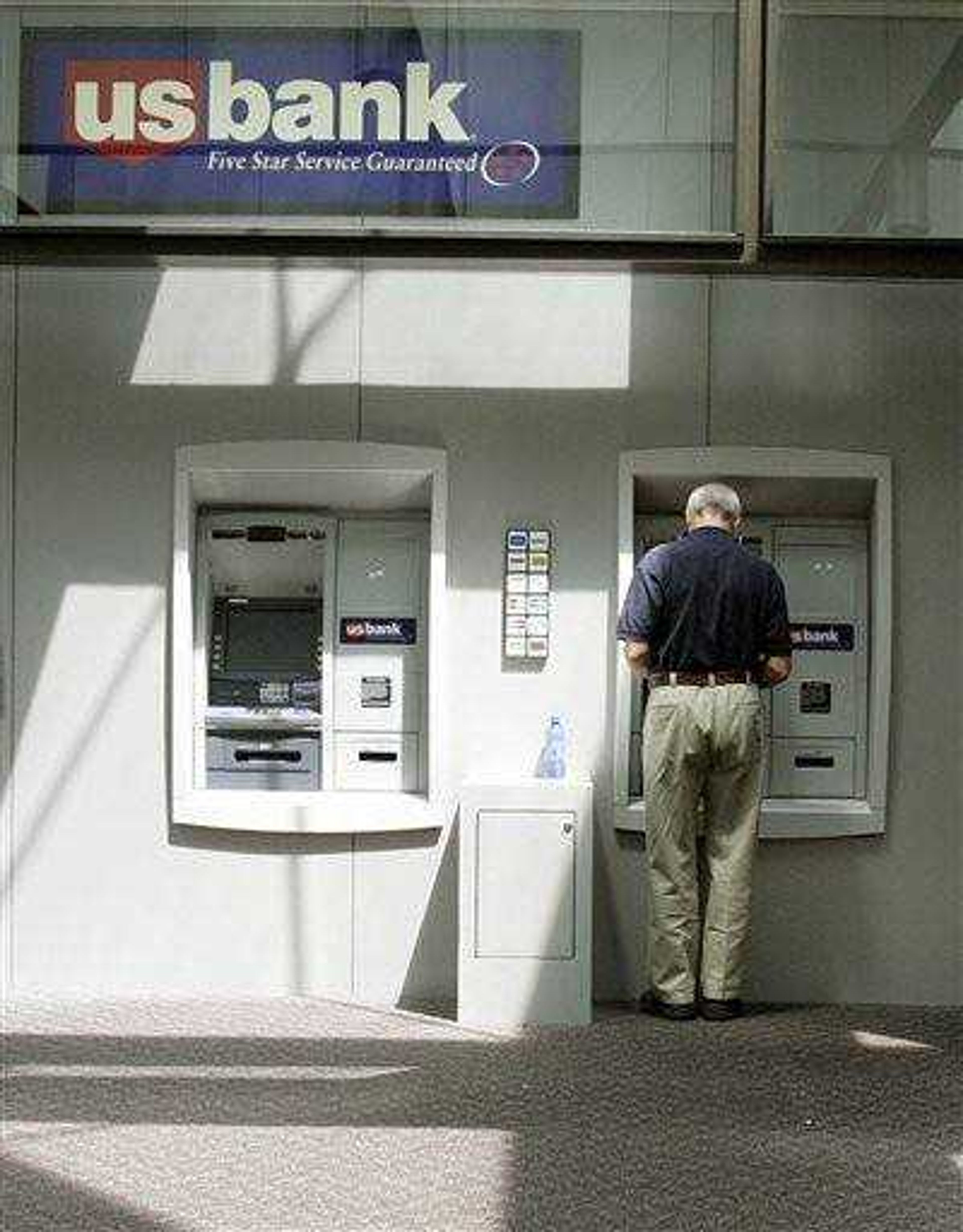Ten big banks get OK to repay $66 billion in bailout money
WASHINGTON -- The Treasury Department has approved 10 of the nation's largest banks to repay $68 billion in government bailout money. The department on Tuesday said the banks, which were not named, will be allowed to repay the money they received from the $700 billion Troubled Asset Relief Program created by Congress last October at the height of the financial crisis...
WASHINGTON -- The Treasury Department has approved 10 of the nation's largest banks to repay $68 billion in government bailout money.
The department on Tuesday said the banks, which were not named, will be allowed to repay the money they received from the $700 billion Troubled Asset Relief Program created by Congress last October at the height of the financial crisis.
The banks have been eager to get out of the program to escape government restrictions such as caps on executive compensation.
All eight banks that took TARP money and last month passed government "stress tests" confirmed that they received permission to repay the bailout funds. They are: JPMorgan Chase & Co., American Express Co., Goldman Sachs Group Inc., U.S. Bancorp, Capital One Financial Corp., Bank of New York Mellon Corp., State Street Corp. and BB&T Corp.
Morgan Stanley did not pass the government test, but on Tuesday said it had raised enough capital quickly and was approved to repay its TARP money.
Northern Trust Corp. was not among the 19 banks subjected to stress tests, but the company said it also had received permission to repay the bailout funds.
President Barack Obama praised the repayments.
Appearing at a White House event to call attention to slow the pace of government spending, Obama stressed that the deal to repay this sum "is not a sign that our troubles are over -- far from it."
But he did call it a "positive sign" and said he is happy that people are beginning to see "an initial return on a few of these investments."
Experts say allowing 10 banks to return $68 billion in bailout money illustrates some stability has returned to the system but caution that the crisis isn't over. Some worry the repayments could widen the gap between healthy and weak banks.
Stocks zigzagged after the Treasury's widely expected announcement. In midday trading, the Dow Jones industrial average dropped about 30 points. Broader indices were mixed.
More than 600 banks nationwide have received nearly $200 billion in TARP money and 22 smaller banks already have repaid it.
"These repayments are an encouraging sign of financial repair, but we still have work to do," Treasury Secretary Tim Geithner said in a statement.
But some analysts warned that strong performance at the largest banks might obscure greater dangers in the broader banking industry.
Smaller banks are still saddled with billions of dollars in risky commercial real estate loans, which could cause heavy losses depending on the speed of economic recovery. And large banks continue to hold the toxic, mortgage-backed assets at the heart of the financial crisis.
Bank analyst Bert Ely called the repayments a positive sign for the banking sector but not a reason to celebrate. He noted that three of the nation's biggest banks -- Citigroup Inc., Wells Fargo & Co. and Bank of America Corp. -- are still tied to the bailout.
The repayments show "that some of the major players have strengthened and will be able to ride out the crisis. The question is how will the other banks manage. It's not even clear the recession is bottoming out," Ely said.
Even the banks permitted to repay the bailout funds are still dependent on government support, including debt guarantees from the Federal Deposit Insurance Corp. and credit lines from the Federal Reserve.
The firms now have the right to purchase the warrants Treasury holds in their firm "at fair market value." Besides Treasury's potential income from the sale of the warrants, the 10 banks already have paid dividends on the preferred stock totaling about $1.8 billion over the last seven months.
The push to repay the funds comes a month after "stress tests" of the nation's 19 largest financial firms found that 10 needed to raise $75 billion more to protect against future losses. All of those banks, including Citigroup, Wells Fargo and Bank of America, had submitted plans by late Monday to bolster their capital cushions that were enough to help them survive a deeper recession, the Fed said.
The other nine institutions had to prove they could raise enough private capital without federal guarantees before they could return the money.
So far, 16 of the 19 banks have raised $75.2 billion, mostly by selling common stock.
Regulators want to avoid letting a bank repay its TARP money only to have it return months later in worse shape, seeking another handout.
____
Jacobs reported from New York. AP Economics Writer Martin Crutsinger in Washington and AP Business Writers Sara Lepro and Madlen Read in New York contributed to this report.
Connect with the Southeast Missourian Newsroom:
For corrections to this story or other insights for the editor, click here. To submit a letter to the editor, click here. To learn about the Southeast Missourian’s AI Policy, click here.










